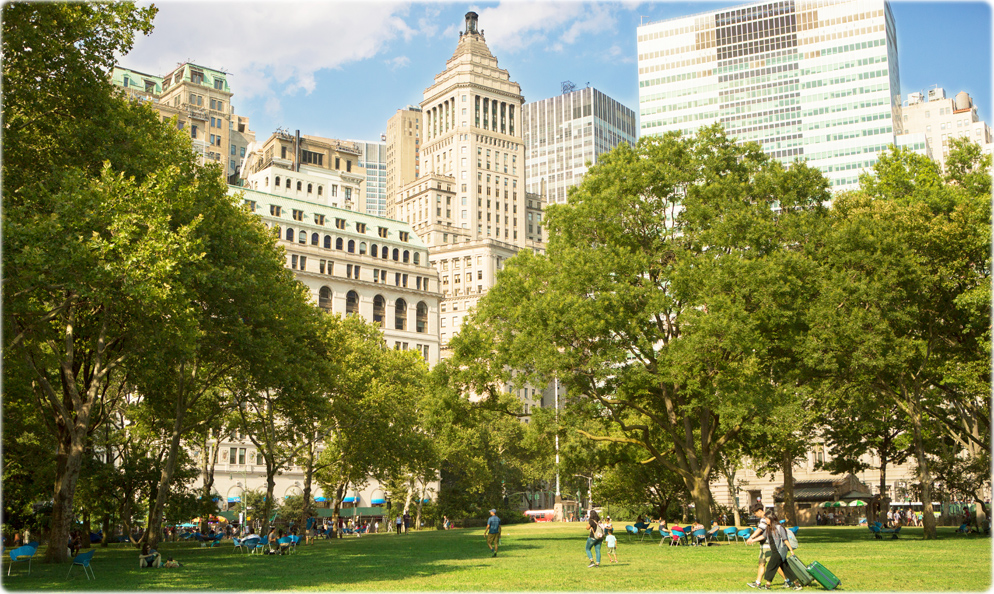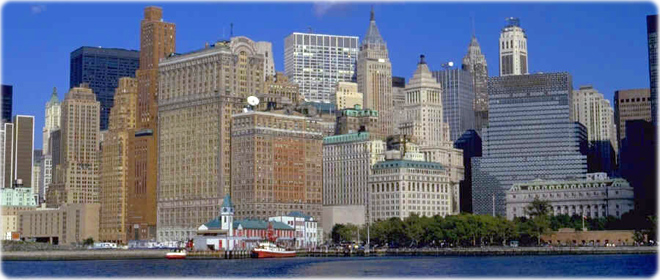
Battery Park
The historic Battery Park (The Battery) is a public park located at the foot of Broadway facing the harbor, at the southern tip of Manhattan Island. It was created in 1823 and contains many monuments, historic buildings and beautiful promenades. From the first European settlement to the early 19th century, this area was dedicated to defense.
In the 17th century, when it was called Capske Hook by Dutch settlers, there was artillery batteries in the area to protect the settlement in Manhattan. On April 27, 1686, the area was designated property of the City of New York by the Dongan Charter.
Castle Clinton was constructed from stone, in 1807, as a means of providing an arsenal in times of battle. The southwest expansion of the Battery was completed in 1811 by landfill. The Battery also expanded during the War of 1812 to protect the Buttermilk Channel in the East River.
The opening of the Erie Canal, in 1825, boosted even more the development of New York. In the 1830s, the Battery was considered one of the finest public walks in the country in warm weather.
In 1855, the Castle Garden, became the Immigration Station. This former naval fortification has changed overtime. In 1871, a small stretch of asphalt pavement was laid in Battery Park.
In 1896, it reopened as the New York City Aquarium. In 1941, the Aquarium was relocated to Coney Island. In 1946, the Castle was restored to its original design by the National Park Service and reopened, in 1975, as Castle Clinton National Monument.

Battery Park and Lower Manhattan about 1940, in a vintage postcard by American Art Publishing Co./ Metropolitan Post Card Company.
Battery Park in the summer of 2018 (credit: Molly Flores/ NYC & Company).

The Battery and surrounding buildings about the 1990s.


Battery Park
|
Copyright © Geographic Guide - Old NYC. Vintage Images of Historic Places. |